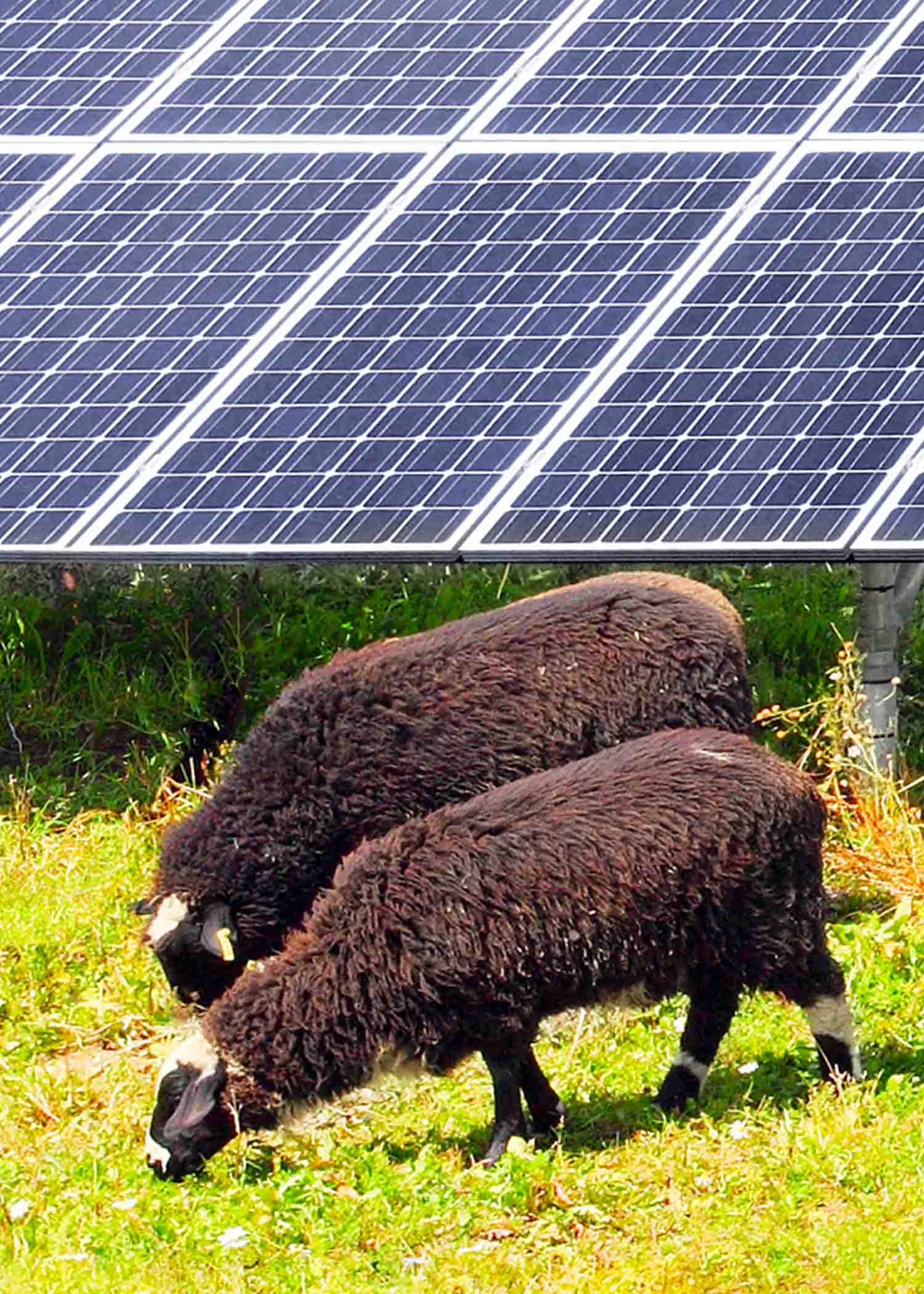Across America, more farmers and ranchers have begun to embrace solar power.
They find that using solar for agricultural applications can save time and money.
How?
The more efficient their operations, the lower the costs and the higher their profits are.
So, what do farmers need to know before using solar for agriculture?
Let’s have a look!
1. Solar for Agriculture Protects the Livestock and Crops
Some farmers and ranchers see solar panels as wasteful land use.
However, solar panels can provide well-needed shade while generating electricity.
Farmers can plant crops that need shade alongside or under solar panels.
Similarly, animals often hide behind solar panels to reduce exposure to the sun.
Solar panels face directly into the sun, so if raised and propped at the right angle, even larger animals can find some shade behind them.
2. Agricultural Solar Use Significantly Reduces Operational Costs
When you have solar panels installed on your property, they provide free electricity and reduce the cost of paying for fossil fuels.
Additionally, solar power systems require little maintenance and upkeep.
Consequently, this frees up some of your time so that you can focus on other aspects of your business.
These include improving crop yields or animal care procedures.
3. Solar Use Makes Irrigation Less Wasteful
Water is a precious commodity on many farms and ranches.
Using solar panels to power an irrigation system allows you to use this valuable resource more effectively.
Why?
Because the pump will only run when the sun shines, thereby running at certain times.
You can also set up solar-powered irrigation systems to allow variable speed control.
This means that the water flow is adjustable to meet the specific needs of the crops or livestock.
As a result, there is less waste and more efficient use of this valuable resource.
4. Farmers Can Use Solar for Agricultural Land Repair
Good farmers understand the need for land conservation.
These farmers let plots of land lie fallow for a certain period so they can recover and restore fertility.
Farmers can install solar panels on fallow land to generate an income despite not being able to use it for traditional farming.
Solar panels can also thrive in areas where plants would struggle to grow.
This includes rocky terrain, hillsides, and areas with poor soil quality.
5. Solar for Agriculture Introduces Diversification
Farmers and ranchers don’t always have a solid retirement plan.
Moreover, farming is a dangerous job, and the risk of serious injuries is high.
While not a traditional way to use solar for agriculture, farmers and ranchers can lease land to generate passive income.
These funds can add to your retirement fund when the time comes.
You won’t need to look far for opportunities, either.
Communities and corporations are constantly looking for land to “farm” solar power.
Solar energy is an excellent resource for farmers and ranchers looking to save money and make money with one investment.
Learn More About Solar Solutions
At Unbound Solar, we help farmers and ranchers find customized solutions to their needs.
Contact us today to learn more about how our solar products and services can benefit your agricultural operation.



